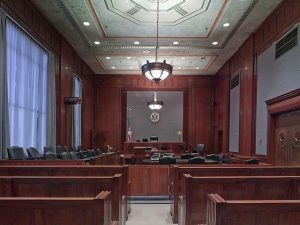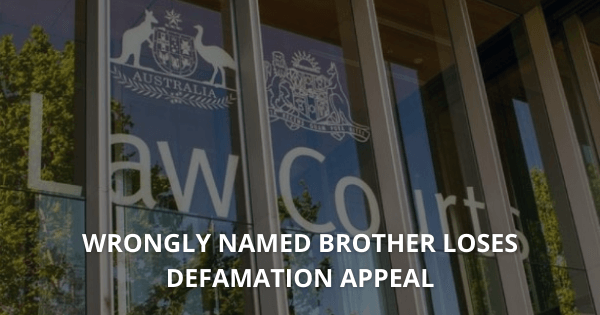Defamation appeal case: Wraydeh v Fairfax Media Publications and Nationwide News
A case of mistaken identity led a man to sue two media organisations for defamation. After losing his trial, the man appealed the matter to the NSW Court of Appeal.
On 7 August 2016, there was a collision between two motor vehicles resulting in the death of a passenger. The driver of one vehicle was Hussein Wraydeh‘s brother, who fled the scene. Shortly after the incident, Hussein Wraydeh attended the scene and spoke with a police officer.
Shortly thereafter, police released a Facebook media release naming him as someone who could assist with their investigations. As a result, Fairfax Media and Nationwide News incorrectly published various articles naming him as the suspected driver of the vehicle who abandoned the scene after collision.
Defamation Proceedings in the District Court of NSW
 The appellant commenced proceedings in defamation in the District Court of NSW against the two media organisations. He claimed that the articles allegedly defamed him by imputing, for example, that he was:
The appellant commenced proceedings in defamation in the District Court of NSW against the two media organisations. He claimed that the articles allegedly defamed him by imputing, for example, that he was:
- a “hit and run” driver,
- a cruel and callous person
- and he was the focus of a police manhunt.
In reply, the news organisations put on a defence with several responses to the imputations pleaded. The most significant of those responses was the defence of “qualified privilege at common law”.
In November 2019, the case proceeded to trial before Her Honour Judge Wass SC and a jury. The jury largely found that most of the imputations the appellant claimed had been conveyed to readers. It was therefore up to the judge to determine whether the defences by the news organisations were valid. If not, the judge had to then decide the amount of compensation the appellant should get.
Her Honour decided that the defence of qualified privilege at common law was correct. However, if in the instance that she was wrong, she calculated the appellant deserved $35,000 from each media organisation.
The appellant appealed the decision to the New South Wales Court of Appeal.
Defamation appeal in the NSW Court of Appeal
The appellant appealed the decision largely on two grounds. Firstly, Her Honour Judge Wass SC was incorrect on deciding the defence of qualified privilege was substantiated. Secondly, the contingent assessment of $35,000 from each media organisation was manifestly inadequate.
The Honourable Acting Justice Simpson delivered a judgement. The other two judges, Honourable Justice Gleeson and the Honourable Justice Bell accepted it. Their Honours decided that the defence was successful as each publication happened on an occasion of qualified privilege and each publication had the necessary degree of connection and relevance to the occasion. It is not the point that the publication was wrong in identifying the appellant as the driver. The claim by the media organisations that the appellant was a suspect of being the driver had sufficient connection with the occasion. Because of this, it was made in the perimeters of qualified privilege.
Even though the defences were valid, their Honours assessed whether Judge Wass SC’s number of damages was manifestly inadequate. The appellant claimed, in his evidence in the District Court of NSW, that he suffered distress from the publications. The publications allegedly led to the breakdown of a relationship. As a result, he was unable to see his kids.
Judge Wass SC stated that the appellant’s evidence was not credible, was inconsistent and unconvincing. Her Honour noted that the appellant did not suffer so much distress as to attempt to correct the record with the media organisations by informing either of them that he was not the driver. She deemed the claim the appellant suffered distress as a gross overstatement. Their Honours in the NSW Court of Appeal decided that Judge Wass SC was not incorrect for making those conclusions.
Defamation appeal decision
Their Honours concluded that even if they did find the defence of qualified privilege was not valid, they would not alter the assessment of damages. They then ordered the appellant to pay the media organisations the costs of the appeal.
If you want more information about this defamation appeal go to [2021] NSWCA 153.



